#Europe universities intakes
Text
Top 5 European Universities for Study Abroad Success

Studying abroad in Europe gives you access to some of the best universities known for great academics and various cultures opportunities. Here are five top European universities that offer excellent study abroad opportunities.
Here are five standout European universities that promise exceptional study abroad success:
University of Oxford (UK): Renowned for its rich history and academic prestige, Oxford offers a transformative study experience with world-class faculty and a vibrant student community.
University of Cambridge (UK): Another prestigious institution, Cambridge provides unparalleled research opportunities and a supportive learning environment amidst stunning medieval architecture.
ETH Zurich (Switzerland): Known for its excellence in science, technology, engineering, and mathematics (STEM) fields, ETH Zurich offers cutting-edge research facilities and a global reputation.
University of Amsterdam (Netherlands): Boasting a multicultural setting and a wide range of programmes taught in English, Amsterdam University is ideal for those seeking a dynamic study abroad experience in a progressive city.
Sorbonne University (France): With a rich heritage in humanities and social sciences, Sorbonne University in Paris attracts students from around the world for its intellectual tradition and cosmopolitan atmosphere.
Study in Europe provides more than just academic growth; it offers a chance to involve oneself in multiple cultures, make international connections, and explore historical landmarks. Each of these universities exemplifies excellence and innovation, making them prime choices for an enriching study abroad experience.
#study in europe#Europe universities#top europe universities#study life in europe universities#Europe universities intakes
0 notes
Text

Would you like to study in the Europe?
The 2023 intake is now accepting applications. Don't miss out.
Follow Your Dream With Our Expertise...
🔗REGISTER NOW! If you want to know more details 👇
🌐 Website: https://sgvisa.in/
📱Contact: +91 90992 93426
📧 Email: [email protected]
#opportunitiescircle #studyabroad #studyinuk #student #university #ukscholarship #study #students #studyinuk #studyinusa #opportunity #opportunities #youthopportunities #ahmedabad #surat
#Would you like to study in the Europe?#The 2023 intake is now accepting applications. Don't miss out.#Follow Your Dream With Our Expertise...#🔗REGISTER NOW! If you want to know more details 👇#🌐 Website: https://sgvisa.in/#📱Contact: +91 90992 93426#📧 Email: [email protected]#opportunitiescircle#studyabroad#studyinuk#student#university#ukscholarship#study#students#studyinusa#opportunity#opportunities#youthopportunities#ahmedabad#surat
0 notes
Text
Aperol Aftermath // M.A
Warnings: language, smut, nsfw, mature, alcohol
Summary: you and Marcus have both had enough
Word count: 1.9k
Author's note: So that new Screaming Meals pod did unspeakable things to me. Enjoy

You couldn’t take it anymore. The way he was sitting with his legs spread wide, head thrown back in laughter as James went on about how attractive he found Charles. It was driving you absolutely insane. Hot and bothered didn’t even begin to describe how you felt. It was no secret that you found Marcus attractive, but something about the carefree laughter as he waffled absolute shit with his friends somehow magnified the effect.
You had been best friends since you were kids, following him to Europe after high school and taking on the role as his social media manager after university. Life with Marcus was filled with joy and laughter and endless adventures. It was a life you never dreamed possible. The catch? Trying to keep a lid on your feelings. Trying to ignore the twinge of jealousy whenever he flirted with someone. Trying to convince yourself that you could be happy with someone else. And now you were standing behind the camera in some hotel in Budapest, imagining what it would be like to be straddling those powerful thighs, letting your thoughts run wild as he filmed another podcast episode.
“Peach?” his voice calling you roused you from your thoughts. You had no idea how long you had been staring, but your skin felt like it was on fire. Marcus had gotten up, now standing in front of you trying to catch your attention. “Kiwi?” you countered hoarsely, your throat and mouth feeling dry. “You ok?” he asked, studying your face. “I’m fine, all good then?” you deflect. “Yeah, ready to head out? Clem apparently knows this amazing club we can go to,” he says, gesturing to Clem, James and Correa heading towards the exit. “Let’s go!” you answer, mentally trying to prepare for the hazzard Marcus turns into when going out.
The club was packed. Barely-room-to-move packed, but luckily Clem had called ahead to reserve the VIP section for your group. Felipe, Juri, Liam, Lando, Lusia and Max were already waiting for you when you arrived. “Maxy!” you exclaim, “it’s so good to see you!”. Sitting down beside him, you gave him a sideways hug. You had known these people for years, but Max was the one you didn’t get to see too often. “Hey Peachy, good to see you too!” he answered while returning your hug. Marcus slipped into the seat beside you, arm slung across the back of your seat. His cologne mixed with something that was uniquely him hit you with the force of a bus, effectively wiping your mind clean. He would be the death of you, you were certain of that.
One thing you couldn’t help but notice throughout the night was that Marcus barely touched alcohol. With him limiting his intake, you decided to do the same. “I wanna dance,” you called to him over the deafening bass. Instead of answering, he grabbed your hand and pulled you to the packed dance floor. The sheer amount of people forced you to be closer than you would normally be. People bumped into you left, right and center, and Marcus pulled you closer so he wouldn’t lose you in the crowd.
His touch spread like wildfire. You had your back to his front, ass brushing lightly over his crotch every time you moved. You lost track of time as you danced with him. Someone bumped into him from behind, causing him to tighten his grip on you to stabilize himself. The action had pulled your ass flush against his crotch, and the groan he let out sent shivers down your spine. He was hard. Rock solid, probably about to burst. There was no way this was happening. You could not be the cause of this. No way. “Peach,” he groaned as you continued to move against him. Hands flexing on your hips, he grinds his cock against you. A soft moan slipped out of you as you threw your head back, leaning on his shoulder. “Stop dancing like that, or I’m gonna cum right here.” even with the noise level of the club his voice was crystal clear in your ear. Moving with more determination, you grabbed his arms from your hips and wrapped them around you, effectively wrapping him around your body. “Are you asking me to fuck you?” he continued, letting his hand rest right below your breast. “So what if I am?” you counter. “Let’s get out of here.”. He didn't wait for an answer, just grabbed your hand pulling you towards the exit.
The ride back to the hotel was quiet. Marcus held your hand and played with your fingers like he normally did. Nothing about his demeanor said he was about to bust in his trousers. He’d wanted this for years, never really finding the courage to make a move. He never wanted to lose you. Didn’t want to know what everyday life would be like without you. Needed your constant support and optimism when races go to hell. Needed the grounding you give him, the sense of calm he feels when he’s with you. He also needs to fuck you. Right fucking now.
As soon as the door to his hotel room had closed, he had you crowded up against it. Forehead pressed to yours, breaths mingled between you. His eyes were blazing, setting fire not only to your body, but your soul as well. Was it worth risking everything for this?
Kissing Marcus felt like coming home. Like a breath of fresh air after being underwater for a long time. His lips were soft against yours, maybe even a little hesitant. Grabbing onto his neck, you pulled him closer to you. Taking that as a “go ahead”, Marcus kissed you with a passion you had never felt before. You knew it was wrong, being pressed up against the door and making out with your best friend like your life depended on it. You couldn’t find it in you to care though. Every filthy thing you had ever imagined about him flashed through your mind, encouraging you to kiss him back with the same passion.
“This dress..” he began, hands roaming over your body, feeling you up in the most delicious way, “should be illegal”. He pulled back to look at you. “If we start this, I won’t be able to stop” he said, “I’ve been wanting this for too long”. “Then don’t stop,” you said, pulling him to another searing kiss. He gripped one of your thighs, lifting it and pulled your core flush against his cock. The moan that left you was boarderline pornographic. The friction his jeans created was glorious, causing you to dig your nails into his back which in return made Marcus let out a deep groan.
“Sofa,” you let out, trying to focus your mind. “What?” he asked, distracted by the feeling of your wetness seeping through his jeans. “Sit on the sofa,” you said. Following your direction, he sat down, looking up at you expectantly. You took a moment to admire him. His legs were spread, just like they had been earlier. His shirt had a couple buttons undone, leaving you a sneak peak of his chest. His hair was a mess, lips red and plump from kissing. He was a sight to behold.
“We’re crossing a line, doing this.” you stated, eyes still lingering on the exposed part of his chest. “I know.” he answered, reaching out a hand to you, pulling you towards him. “You’ve ruined me for anyone else,” you said, looking into his eyes. You could see the emotions swirling there, probably wondering the same thing you were. “Yeah?” he asked, making you straddle him. “Yeah.”. “Good, I don’t want anyone to touch you. Only I get to touch you like this,” his thumb gently stroking under your breast as he was talking. “As long as I’m the only one that gets to touch you like this,” you counter, slowly unbuttoning his shirt all the way. This man was truly beautiful. “Always.”.
Deciding that you’d had enough, you kissed him again, letting your hands wander his body before ending up in his hair. A delicious groan left him as you tightened your grip at the same time as you rolled your hips. He grabbed the hem of your dress, slowly peeling it off your body. Pulling away to get it over your head, his eyes landed on your naked chest as the dress did not allow for a bra. “Fuck.”. Without further ado, he pulled you closer, burying his head in your boobs. It didn’t take him long to find your nipple, sucking it greedily into his mouth. The action made you roll your hips faster against him, hands finding purchase in his hair again.
“Marcus,” you moan, pulling his head up so you can kiss him again. Making quick work of his clothes and your underwear, you found yourself hovering over his length. “You are so beautiful,” he said, hands palming your ass. You took hold of his dick, slowly spreading your wetness around with the tip. Groaning, his head tipped back, leaving his neck exposed. You gasped as you slid down on his cock. When you were fully seated on his cock, he lifted his head, looking straight into your eyes. “I saw the way you were looking at me when we were filming the podcast,” he said, “I could practically see all the filthy things flashing through your mind.”. “You looked so good.” you moaned, slowly rolling your hips. “Tell me what you were thinking,” he demanded. “I was thinking I wanted to ride you, just like this, your dick reaching so deep inside me I’ll be able to feel it for days.” you had no issue admitting where your thoughts had been.
Your words made Marcus spring into action. Holding you above him, he started moving faster, thoroughly fucking you, reaching deeper than anyone had ever done. The heavy drag of his cock against your walls had you hurtling towards the edge in no time. With every thrust he hit that sweet, sweet spot within you, making you clench around him. “Fuck, you are so tight,” he moaned, throwing his head back again. Leaning your head against his shoulder, you peppered small kisses along his collarbone, occasionally sucking on his skin, leaving small marks.
“Marcus, I’m gonna cum,” you moaned, pulling your head up to kiss him. “Yeah? You gonna cum on my cock like a good girl?” the words left his mouth before he could think about it. The effect however, was nothing he could have imagined. Your walls clamped down on him, holding him like a vice, fluttering as you came. With a groan of your name, he followed you over the edge.
“Fuck,” he panted, letting his arms circle your waist, holding you to him. “You have no idea how long I’ve wanted to do this,” he said, fingers tracing random patterns on your back. “Probably not longer than I’ve wanted this,” you countered, feeling a blush making its way onto your cheeks. One of his hands found its way to your chin, tipping your head up so he could look at you. “This is not a one time thing. I am all in. I am all yours.” he said, trying to convey how he felt with his eyes. “I am all yours Marcus, always have been.” you said, placing a lingering kiss to his lips. Hiding your face in the crook of his neck, you felt ridiculously content.
#f2#formula 2#f2 fic#marcus armstrong#marcus armstrong smut#marcus armstrong fic#f1 smut#marcus armstrong x reader#this is filth#sorry not sorry#f2 smut
471 notes
·
View notes
Text
Vision Board

Notes:
Find a best friend. This goal is probably the most important to me but also the most difficult. I have a hard time with people. Hugging – even family – is really hard for me. I am super shy and there is no one I am really close to. I do have people I consider friends, but even with them, I am not at ease. This has always been the case. I don't know why. Not sure how, but I will try to force myself to form relationships with people I admire and maybe i will find someone i can trust, talk freely with and take on any adventure without worry.
I really want a group of friends I can hang out with, have fun and just feel like i belong. Right now when i am invited to group events i have a hard time talking, i feel clumsy, boring and like an outsider.
I want to eat healthier. This is probably one of the standard goals everyone has on their lists. Right now, I have no discipline or rules. I want to learn more about what I am consuming and its effects on my body and the environment. One of the main goals is to gain control over my sugar addiction. Another goal is to eat and drink more things i really love (like fresh orange :drool:) - even if they are more expensive and/or take more effort to prepare.
I definitely need to drink more. I've always had a hard time staying hydrated because I don't get thirsty often. I can go a day without drinking, only realizing I need to water when I have a headache the next day. I need to work on tracking my water intake and make it a habit to drink regularly, as it doesn't come naturally to me.
More city trips. I want to explore my country and Europe a bit more next year. I plan to do some short city trips, either alone or with a friend. On my list for this year are Paris, France, and Prague, Czech Republic. Additionally, I'd love to visit Mont Saint Michel, Barcelona, Chamonix, and many more. This category also includes attending events like concerts and festivals. Do you maybe have any beautiful city suggestions in Europe for me?
I want to go on a sailing adventure. My family already owns a very small boat, and I've been a few times with a university club, but I haven't learned much yet. My goal is to get the license and knowledge to steer a small dinghy and spend at least one summer traveling with it. While I might not be able to take lessons or sail this year, I can already work on the theoretical knowledge needed, mainly navigation and knots, to pass the exam.
Spend more time outside (in nature). Since I spend so much time on the computer and on my phone, I want to work on going outside more. I have a hammock I used to sleep in outside – maybe I can start doing that again. I also want to go camping more frequently, even just for a weekend to prepare for upcoming big hikes like e.g. E4.
Take more pictures. I used to take my camera everywhere and often visit locations because I heard they would be beautiful. At some point last year I stopped taking pictures. I think it was a good habit, since it also helped me remember all the cool stuff i did.
I will also go running again outside. Another activity i kinda stopped doing at some point but miss. Right now i am working on a training routine which will hopefully prepare me to run a half marathon again in a few months.
Adopt a dog. My dream is to one day adopt a dog. When I looked for puppies last year, I fell in love with a big white "ice bear". I wanted to call her Greta. Right now, a dog does not fit into my life, but maybe I can prepare. I will try to help out at the local animal shelter and work on passing the exam that will allow me to own a big dog.
Be more conscious about the environment. I see all the terrible things happening in the world and also how much trash I create. I know there is a lot more to do, but I will try to think about ways to make the world a better place starting with my own life.
Read more and stay up-to-date with what's going on in the world. I recently started reading books again and want to make it a habit. I will also try to stay informed by reading news articles now and then. If I can afford it, maybe I can subscribe to a daily news website.
Find a home. Right now i don't have a place i feel safe and at home at. My goal is to move into my own place with my boyfriend. I also need to organize and declutter my stuff which is all over the place and pure chaos atm. Let me know if you're interested in a post about this journey.
Get a job in the field I love and improve my skills. I finished my university degree this summer. I haven't found a job yet but hope I will soon.
Take notes and be more creative. I have a sketchbook and a list of creative things I want to learn/try out. Also, this blog is something I always wanted to start. I hope you like it, and I hope I will be able to keep posting! Feel free to dm me anything you think I could do better or let me know your thoughts in general ♡.
What are your goals this year and how does your vision board look? I am wayy too curious...
#vision board#goals#motivation#first post#new years resolution#vision#deep thoughts#lf friends#dm me#training#affirmyourlife#affirmations#affirmyourreality
9 notes
·
View notes
Text
Jews around the world have recently celebrated Passover, a festival commemorating the exodus of the Israelites from slavery in ancient Egypt. To mark the occasion, the BBC screened a documentary about a modern exodus, the flight of Jews from France. With an estimated 475,000 Jews, France remains home to Europe’s largest Jewish population. But in recent years, rising anti-Semitism and a series of terror attacks have forced out a growing number. As many as 8,000 left in 2014, up from 1,900 five years earlier, a fourfold increase. Most of them are moving to Israel but many are seeking refuge in Britain. French Jewish children now make up half the intake at Jewish schools in London. Anyone who has travelled recently to Paris will have seen signs of the tense atmosphere that French Jewish refugees are leaving behind. Every Jewish building is guarded by soldiers in full combat gear.
Sadly, anti-Semitism in France is only the starkest manifestation of a growing contemporary Jew-hatred in Europe and across the world. The cancerous belief that the world is run by an international Jewish conspiracy shapes the world-view of much of Iran’s governing elite, operatives of Islamic State (IS), nationalist leaders in Slovakia and Hungary, and a major Palestinian political organisation. It even pervades parts of a mainstream British political party, and our university campuses, too. Where did this poison come from, and is there an antidote to it?
1. European origins
Conventional religious Jew-hatred is thousands of years old. Across the Christian world, the Jews’ claim to be a “chosen people” and the accusation that Jews killed Jesus led to violent persecution. Throughout Europe, anti-Jewish pogroms were sparked by the accusation that Jews kidnapped and killed Christian children in order to use their blood for religious purposes, particularly in unleavened bread consumed on Passover. One of the earliest cases of the blood libel occurred in Norwich in 1144. Within 150 years, the entire Jewish community was expelled from England. Across Europe, Jews were confined to ghettos and restricted to certain professions, such as moneylending, inculcating an image of Jews as nefarious Shylocks.
Most European Jews were emancipated by the mid-19th century. Thereafter, a new brand of paranoid, racial, political anti-Semitism emerged. As feudal systems fell across Europe, Jews were held responsible for the social and cultural ills that accompanied the collapse of the old order. The Jews were viewed as the vanguard of the department store, which ruined small shopkeepers, of the Industrial Revolution, which gave advantage to the few at the expense of the many, and of a global financial system that enslaved economies through the market and its servant parliamentary democracy. It was in response to this new anti-Semitism, and in particular the Dreyfus affair in France, in which a Jewish army officer was falsely accused of treason amid an atmosphere of intense anti-Jewish bigotry, that Theodor Herzl developed modern Zionism – the re-establishment of a Jewish state in the Jews’ ancient homeland.
Adolf Hitler came to anti-Semitism by way of anti-capitalism, particularly of the “international”, Anglo-American variety, which he accused of reducing post-First World War Germany to the status of a “colony”. The socioeconomic decline of the German middle class after the First World War and particularly during the Great Depression helped bring him to power and make the Holocaust possible.
Jew-haters have thus built on different tropes in different contexts and countries. What unites modern anti-Semites, however, is the conspiratorial belief that Jews run the world. Its foundational text is The Protocols of the Elders of Zion. First published in a St Petersburg newspaper in 1903, and subsequently reprinted many times by Russia’s political and religious authorities, this forgery purported to be a blueprint for a secretive scheme to overthrow all existing governments, institutions and religions and, in their place, to construct a Jewish world empire.
The Protocols was neither the first nor the last publication of its kind but it was by far the most successful. After the Russian Revolution, this fabrication was brought to central and western Europe by White Russian émigrés. In the febrile atmosphere across the continent after the First World War, the Protocols offered a simplistic explanation for global unrest. The Jews served as convenient scapegoats for German and Russian right-wingers, seeking to explain their traumatic defeats, and offered an external and internal enemy against whom to rally their countrymen.
Since the Protocols first appeared, millions of copies have been published and the text has been translated into many languages. But nowhere has it been disseminated more widely in the past half-century than in the Islamic world, where political anti-Semitism is a relatively recent phenomenon.
2. Middle Eastern connection
Previously, the Muslim-Jewish relationship was an ambiguous one. While there are verses in Islamic scripture that some have taken as commanding all Muslim believers to kill Jews and Christians, there are also verses urging tolerance towards both.
There were pogroms against Jews in Granada (1066) and Fez (1465) in which thousands were killed. Within the Ottoman empire, however, Jews enjoyed protection as second-class citizens (dhimmis), allowed to practise their religion quietly as long as they paid a special poll tax, abided by various proscriptions, including bans on bearing arms and riding horses, and accepted their inferior status. Up until the 18th century, Jews fared far better in the Muslim world than in Christian Europe.
When anti-Jewish persecution grew more pronounced in the 19th century, responsibility often lay with Christian Arab communities, whose propagation of the European-sponsored blood libel produced the Damascus outrage of 1840 in which 13 leading Jews were arrested and four killed. It was only after the First World War, the Balfour Declaration and the establishment of European protectorates over parts of the former Ottoman empire that growing anti-Zionism provoked violence against Jews across the Arab world. Massacres of Jews occurred in Hebron (1929), Baghdad (1941) and Tripoli (1945). The Grand Mufti of Jerusalem, who resided in Germany for much of the Second World War, urged the Nazis and their allies not to allow Jews to escape to Palestine, but to send them “to Poland” (meaning Auschwitz) instead. Even before the establishment of Israel in 1948, therefore, paranoid, political anti-Semitism had gained a foothold in the Islamic world.
After 1948, anti-Semitism among Arabs was exacerbated by the defeat of their armies by a people traditionally confined to a subservient position in the Muslim world. A tragic consequence of the war was that hundreds of thousands of Palestinian Arabs fled or were expelled and, in response, hundreds of thousands of Jews from across the Arab world, members of 2,000-year-old communities, were now identified as Zionist agents, persecuted and ultimately driven to seek refuge in Israel. The Protocols, which first appeared in Arabic in 1927, and Hitler’s Mein Kampf, partially published in Arabic in the 1930s and fully in 1963, now found even more enthusiastic readers across the region. As the USSR emerged as a political ally of the Arab nations, and the United States forged closer ties with Israel after the 1967 war, Arab anti-Semites increasingly focused on the allegedly capitalist and imperialist character of world Jewry, and on Jewish control over US foreign policy.
In recent decades, this brand of anti-Semitism has become increasingly Islamised. As early as 1950, the seminal Islamist thinker and Muslim Brotherhood leader Sayyid Qutb was writing about “Our Struggle With the Jews”. Qutb claimed that “world Jewry’s purpose is to eliminate all limitations, especially the limitations posed by faith and religion, so that the Jews may penetrate into [the] body politic of the whole world and then may be free to perpetuate their evil designs”. But it was only with the failure of Arab nationalism by the late 1970s that Islamist anti-Semitism really took off.
The founding charter of Hamas, the Sunni Muslim fundamentalist organisation that governs Gaza, refers approvingly to the Protocols and quotes a disputed hadith that says: “The hour of judgment shall not come until the Muslims fight the Jews and kill them, so that the Jews hide behind trees and stones, and each tree and stone will say: ‘O Muslim, o servant of Allah, there is a Jew behind me, come and kill him.’”
The leader of the 1979 Iranian Revolution, Ayatollah Khomeini, declared in his book Islamic Government (1970) that “Jews and their foreign backers are opposed to the very foundations of Islam and wish to establish Jewish domination throughout the world”. Khomeini’s successor, Ayatollah Khamenei, often denies the Holocaust, and he and other Iranian leaders routinely refer to the global dominance of “Jewish” and “Zionist” forces – terms that they use interchangeably.
Iran’s Shia proxy, Hezbollah, has fought to keep Anne Frank’s diary out of Lebanese schools as part of a Holocaust denial campaign and its leader, Hasan Nasrallah, stated that if the Jews “all gather in Israel, it will save us the trouble of going after them worldwide”. However, this did not preclude Hezbollah from targeting a Jewish community centre in Buenos Aires (1994) or bombing Israelis on a bus in Bulgaria (2012).
Even in Malaysia, remote from Israel and home to barely any Jews, anti-Semitism is rife. In 2003 Prime Minister Mahathir Mohamad urged the world’s Muslims to unite against Jews, claiming that although Europeans had killed six million of them, “today the Jews rule the world by proxy”. Just last month, Dr Fouad Bseiso, the Palestine Monetary Authority’s first governor in the 1990s, claimed on Hamas satellite TV that “global Judaism” had caused the 2008 financial crisis, fulfilling plans revealed in the Protocols. Explicit anti-Semitism is routine in Middle Eastern political discourse. At the same time, this toxic ideology is being reimported into its continent of origin and is now flourishing among disenfranchised Muslim immigrant communities in Europe.
3. The reimportation of anti-Semitism to Europe
The embodiment of this new anti-Semitism is the proudly anti-Zionist and Jew-baiting French “comedian” Dieudonné M’bala M’bala. His shows are particularly popular among disadvantaged French youth from immigrant backgrounds. They feature Holocaust revisionism, jokes about the gas chambers and the “quenelle”, an inverted Hitler salute that M’bala M’bala invented. M’bala M’bala also likes to refer to the Shoah as the “shoannas” (as in ananas), likening the Holocaust to a pineapple. In January, he responded to the killings of Jews at a kosher supermarket in Paris by signalling solidarity with the perpetrator, Amedy Coulibaly.
Coulibaly’s armed assault, two days after the Charlie Hebdo killings, followed a pattern that has long been evident in Islamist terror attacks. In March 2012, Mohamed Merah killed seven people in Toulouse. Four of his victims, including three children, were murdered at a Jewish day school. In 2014 Mehdi Nemmouche, a French national of Algerian origin, killed four visitors to the Jewish Museum in Brussels. Security services now view this as the first in a succession of attacks in Europe linked to Islamic State. Nemmouche was part of the European network set up by Abdelhamid Abaaoud, thought to have masterminded the November Paris terror attacks that left 130 dead.
Nor is this pattern evident only in Europe. One target of the 2008 Mumbai terror attacks was a Jewish centre, where hostages were tortured before being killed. After the 19 March suicide bombing in Istanbul, where three of the five victims were Israelis, intelligence offers uncovered advanced plans by IS terrorists to murder Jewish children in Turkey.
What is striking about all these attacks is that they are directed against Jews worldwide, rather than Israel itself. In part, to be sure, this reflects the Jewish state’s capacity to defend itself, but it is also a sign that these anti-Semites see themselves as engaged in a global struggle against Jewry, rather than just a regional contest against Israel.
4. Resurgence of fascist anti-Semitism
Though Islamist anti-Semitism is the most virulent strain of this hatred today, the old-style, fascist variant is also experiencing a revival in Europe. Far-right parties are advancing across the continent and many are directing their hatred against Muslims and Jews alike. Anti-Semitism is very pronounced in Hungary, home to the largest population of Jews in the eastern European Union. Gábor Vona, chairman of the racist Jobbik, which recent opinion polls rate as Hungary’s second-strongest party, told a rally in Budapest against the World Jewish Congress in 2013: “Israeli conquerors, investors and expansionists should look for a country in another part of the world because Hungary is not for sale.” Vona accused Hungarian “Jews” (pure and simple) of being “anti-Hungarian”. A Jobbik MP called on the Hungarian government to “establish how many people of Jewish descent there are here, and especially in the Hungarian parliament and the Hungarian government, who represent a security risk”.
Another manifestation of a far-right movement motivated by anti-Judaism, sometimes masquerading as anti-Zionism, is in Slovakia, home to a minuscule Jewish population since the Holocaust. In March, Marian Kotleba and his ultra-nationalist People’s Party Our Slovakia made a strong showing in parliamentary elections. Until recently, he wore the uniform of the Hlinka Guard – the militia of the Nazi-sponsored Slovak state – which was an eager participant in the transportation of 75,000 Slovakian Jews to the gas chambers. Kotleba’s party newspaper reprinted a Nazi propaganda cartoon featuring a stereotypical image of a Jewish moneylender. This is part of a broad attack on the West and its values. Kotleba has condemned Roma as “gypsy parasites”, denounced Nato as “criminal”, supported Vladimir Putin’s annexation of Crimea and denounced Western democracy for spreading “dangerous sects and sexual deviations”, all standard themes of the far right across Europe.
Like Nazi ideology, Islamist extremism and far-right fascism are rooted in a deep-seated anti-Semitism that begins by targeting Jews and expands its focus outwards. Islamists and European fascists are convinced that a global Jewish conspiracy runs the world. They regard Jews as the embodiment of the West and as symbols of all they most despise about its values: tolerance, liberty, freedom and democratic capitalism. The West is thus regarded as politically “Jewish” whether it is aware of this or not.
Far from being an exclusively Jewish problem, paranoid, political anti-Semitism endangers us all. It is the harbinger of a broader assault on Western modernity.
5. Anti-Semitism and the left
As the heir of the Enlightenment and ideals of the French Revolution, the European left championed emancipation, equality and tolerance in the 19th and early 20th centuries. Thus, it was regarded favourably by Jews. And yet hostility to Jews animated the world-view of some pioneering socialists. For instance, the late-18th- and early-19th-century utopian socialist Charles Fourier regarded Jews as “parasites, merchants, usurers”. They were agents of capitalism and commerce, personified most powerfully by the Rothschilds. Karl Marx, even though he was of Jewish descent, claimed that Jews had made money the “God of the world” and called for humanity to be emancipated from Judaism. It was these manifestations of anti-Judaism that led the German Social Democrat August Bebel to refer to anti-Semitism as the “socialism of fools”.
That Jewish leftists were heavily represented in the leadership of the socialist and communist movement, from Trotsky down, led right-wing racists to equate Judaism with Bolshevism. At first, the Soviet Union embraced this association. In 1931 Stalin declared that anti-Semitism was “the most dangerous vestige of cannibalism” and that “under USSR law . . . active anti-Semites are liable to the death penalty”. The USSR was the first state to grant de jure recognition to Israel, and supported it with arms during the 1948 conflict. However, it turned sharply against Israel and global Jewry from the 1950s onwards.
In the early 1950s, Stalin launched a major anti-Jewish campaign that culminated in the arrest of Jewish doctors accused of poisoning Communist leaders. In 1952, he told the Politburo: “Every Jewish nationalist is the agent of the American intelligence service.” America was the USSR’s principal enemy in the Cold War and its sizeable Jewish community was believed to be at the centre of a worldwide network that was doing the bidding of the new Israeli state, and which had operatives across the globe, including the USSR and communist-controlled eastern Europe.
This anti-Semitic, anti-Zionist campaign was taken up throughout the communist world. Its anti-Jewish nature was clear in the show trials of Jews and their removal from critical positions in local Communist Parties, accompanied by a barrage of openly anti-Semitic propaganda. The most notorious instance of this was the 1952 Slansky trial in Czechoslovakia, during which the state denounced the defendants, not all of whom were Jewish, as “Zionists”, “Jewish capitalists” and “Jewish Gestapo agents”.
After Stalin’s death, his successors upheld his legacy of conspiratorial, anti-Semitic anti-Zionism. Soviet propaganda portrayed “Zionism” as both a tool and a puppet master of US imperialism, peddled the delusion that a state established by Jews fleeing genocidal racism was in fact a Western colonialist enterprise, and depicted “Zionists” as the ideological heirs of Nazi Germany, controlling financial markets and the media. These calumnies were uncritically circulated by the communist press in Europe and seeped into the ideology of Soviet sympathisers on the socialist left. The residue of this can be seen in the former Labour parliamentary candidate Vicki Kirby’s suggestion that Hitler was “the Zionist God” and the Trotskyist former Labour member Gerry Downing’s contention that a capitalist offensive against workers is led by “the Jewish-Zionist bourgeoisie”.
Soviet-sponsored anti-Semitism was reinforced by a third-world romanticism that regarded Zionism as reactionary imperialism and the Arab opponents of Israel as progressive fighters for national liberation who could never be condemned, however radical their rhetoric and tactics.
Western extreme leftists attended Palestinian terror training camps and participated in attacks against Israelis and European Jews. In 1976, operatives from the Popular Front for the Liberation of Palestine and members of the German Revolutionary Cells hijacked an Air France flight and diverted it to Entebbe. They released all non-Jewish passengers and held all Israelis and other Jews of various nationalities hostage.
Conspiratorial leftist, anti-Semitic anti-Zionism did not disappear with the collapse of the USSR. Instead, it mutated into an anti-globalist variant, maintaining the belief that Israel is a vestige of Western colonialism and that “Zionists” are behind the spread of global capitalism, run US foreign policy and seek world domination. The extent to which this poisonous perspective is thriving on British university campuses is illustrated by Malia Bouattia’s election as president of the National Union of Students (NUS). Bouattia has called the University of Birmingham a “Zionist outpost”, on the grounds that it has “the largest J-Soc [Jewish Society] in the country”. While serving as the NUS’s national black students’ officer, she refused to vote for a motion condemning IS and blamed UK anti-terrorism policy on a “Zionist and neocon lobby”.
Further evidence of left-wing anti-Semitism emerged when it was reported that the Labour MP for Bradford West, Naz Shah, until 26 April a PPS to the shadow chancellor, John McDonnell, and a member of a parliamentary select committee investigating British anti-Semitism, had urged the “transportation” of Israeli Jews to America en masse. Shah was consequently suspended from the Labour Party.
Unlike Islamist and far-right extremists, most of the “anti-Zionist” left does not think of itself subjectively as anti-Semitic; many would be appalled at the suggestion. They are often uncomprehending of the nature of Middle Eastern and Islamist anti-Semitism, as evidenced by Vicki Kirby wondering on Twitter why IS had not yet attacked “the real oppressors #Israel”.
One wonders what is more remarkable here: the spectacle of a member of a mainstream Western party handing out white feathers to an extreme Islamist terror group, or her failure to understand that it is primarily waging a global war on Jews and the West, not a regional struggle against Israel. One way or the other, leftist elements who speak of the “Zionist media”, conflate Jews with Israel and generally obsess about Palestine exhibit a structurally anti-Semitic world-view, whether they are conscious of it or not. It is striking that those who spend so much time talking about “discourses”, “dog-whistle politics” and suchlike should show so little sensitivity when it comes to the use of language about Israel, Zionism and the Jews.
All this shows that much of the British student left, and parts of the Labour Party, have “some kind of problem with Jews”, as Alex Chalmers stated when resigning as co-chair of the Oxford University Labour Club in February 2016. A coalition of apparently anti-racist, anti-colonial activists is united in its unwavering hostility to “Zionism”. They demand that Jews and only Jews give up their national self-determination, for the belief in the right to a Jewish state is all that the term “Zionism” means.
The absurdity of anti-racist anti-Semitism is perhaps most clearly demonstrated by a march in 2014 in Toulouse against anti-Semitism, homophobia and other forms of racism that ended in Jewish protesters being denounced as Zionists and urged to leave. When Jews are being chased away from rallies against anti-Semitism, the problem should be clear for all to see.
6. An antidote?
Dealing with anti-Semitism has become more difficult since 1945, after the mass murder of the Holocaust, as few anti-Semites, at least in Europe, are now willing to wear that label openly. Anti-Semitism is a virus that has taken so many forms and proved so resistant that it may be impossible ever to eradicate it. Yet we must begin by recognising that anti-Semitism is a world-view, rather than just another form of prejudice. Other groups – such as black people and gypsies – may suffer worse discrimination in European societies every day. Nobody, however, thinks that black people or gypsies run the world.
After the Charlie Hebdo and kosher supermarket attacks, the BBC correspondent Tim Willcox put it to a terrified Jewish woman that a possible explanation for the slaughter was that “Palestinians suffer hugely at Jewish hands”. Leaving aside that no action taken by Israel could justify the killing of Jews merely because they are Jews – in Paris or anywhere else in the world – it is clear that the murders were motivated not simply by a particular reading of the Israeli-Palestinian conflict but by a paranoid, conspiratorial anti-Semitism.
We must ensure that expressing solidarity for the Palestinian cause does not extend to sharing platforms, joining coalitions or marching in rallies that include anyone who justifies genocidal terrorism, invokes the blood libel or denies the Holocaust. We must reject cultural and moral relativism, and establish a new intellectual and political project committed to combating conspiratorial views of Jewish power, whoever expresses them.
We must make clear that the establishment of the state of Israel was a product of global, especially European, anti-Semitism and not the other way round.
We must recognise that, throughout history, the Jews have served as a “canary in the coal mine”, providing early warnings of extreme, xenophobic ideologies on the rise. This is evident in radical Islamism, the most extreme contemporary manifestation of anti-Semitism. While the West thinks it is fighting a war against “terrorism”, Islamists are fighting a war against what they perceive to be a world Jewish conspiracy. Islamist terror attacks are almost certain to be preceded by, involve, or be followed by attacks on Jews, and we must adjust our security measures accordingly.
Above all, we must all be aware of the stakes. Supporting Jewish people worldwide against the new anti-Semitism, be it Islamist, far-rightist or leftist, is not so much a matter of demonstrating solidarity, but of ensuring our own survival.
Although the French government has increased security at Jewish institutions, it is clear that governments alone cannot make Jews feel safe in France or elsewhere in Europe. Moreover, with Dieudonné and his ilk claiming that attacking Jews is the best way to harm the “establishment”, some say that governmental protection only stokes their paranoia. Well, as C P Snow said, the only way to deal with a paranoid man is to give him something to be paranoid about. Other European countries must follow France’s example and devote additional security resources to the defence of Jewish institutions across the continent. They must eschew the example of Belgium, where the authorities asked the Jewish community to drop Purim celebrations, pleading insufficient manpower to protect them after the Brussels attacks in March. The symbolism of the “Great Synagogue of Europe” in the political capital of our continent cancelling service on a major Jewish holiday was shattering.
By dedicating themselves to defending Jewish institutions across the country, the French security authorities have shown that they recognise that paranoid anti-Semitism is a threat to civilised values everywhere. As soon as the rest of the world wakes up to this, and ensures that Jews never again have to flee persecution, the safer we will all be.
3 notes
·
View notes
Text
youtube
Folk singer Nick Keir was born in Edinburgh 14th March 1953.
Nick was born into an established Edinburgh family business, David Keir and Sons. He was never cut out to be a businessman and resolutely pursued his life as a poet and dreamer. He was one of the first intake at the new University of Stirling in 1971 and it was there that he developed his performance as a folk singer. He formed the folk-rock band Finn Mac Cuill in 1972. With the Finn McCuill Folkshow he toured Scotland with the poet Norman McCaig and had many wry anecdotes of those times. He then joined the leftist theatre group 7:84.
In 1982, he was invited to join the McCalmans and remained with them for the next 30 years until the band dissolved, touring all over the world as one of the best known and most successful Scottish Traditional acts. In 2004 , together with the group, Nick was inducted into the Scottish Traditional Music Hall of Fame on the occasion of being awarded the Lifetime Achievement Prize at the Scottish Folk Awards, and in 2005 the group received the Danish Folk Music Prize at the Skagen Festival.
After the McCalmans, Nick performed across Europe with the acclaimed Tolkien Ensemble, presenting a musical spectacular with Sir Christopher Lee in The Lord of the Rings. He also played with the Holbaek Ensemble of Denmark playing an exciting mix of Scots and Irish Traditional music laced with the Baroque of Correlli and Vivaldi. He also found time to do four solo cds, the song American Accent being on the second release “All over this town”
In 2012 he was diagnosed with a serious illness and courageously battled on, delivering his final masterly performance in the Spring of this year at the Queens Hall, the McCalman’s home venue and within yards of where he had grown up and lived nearly all his life.
A modest and infinitely courteous man, his songs and music could capture the spirit of Edinburgh through the eyes of an unashamed romantic.
Close your eyes, listen to Fires of Edinburgh, and imagine yourself there wandering through the cobblestone streets, getting lost in the closes, staring up the volcanic rock of the castle walls, and sitting down for a pint in the back room of a pub, where a kind man with a penny whistle plays an old air for a lost friend.
It's a fantastic song be a very talented man.🏴
4 notes
·
View notes
Text
Licensed Mental Health Counselor In New York

Maria Ruiz De Toro, LMHC
Licensed Mental Health Counselor and Supervisor
Are you experiencing emotional pain? Symptoms are not the problem but the solution! By listening to ourselves and reviewing intimate issues, relational patterns and life experiences, in a structured and organized manner; we can better understand out pain and symptoms, heal and gain insight to resolve our conflicts, be more emotionally consistent and work towards supporting out real self. I welcome you to work on this process. I utilize a variety of therapeutic approaches, including insight oriented, psychodynamic and experiential therapies, and evidence-based treatment such as cognitive behavioral therapy.
Please know that one of the strengths of my work entails sorting through life events, including child history and relationships, and helping you to reframe and restructure them into healthier perceptions and positive internalized realities that promote growth.
I believe that including the person’s style and personal interests is essential during the healing process. I also incorporate art interventions and body awareness techniques into my practice. As an international psychotherapist I have lived in and traveled to different parts of the world, including Asia, Europe, and the Americas and I have worked with a culturally diverse caseload throughout my career.
Areas of Expertise:
Anxiety and Depression
Family Therapy and Couples Therapy
Post Traumatic Stress Disorder (PTSD)
Parenting Issues
Developmental Crisis
Life transitions/Moves and Changes
Acculturation and Adjustment
Child and Adolescent Psychotherapy
Education and Experience:
M.A., Brooklyn College, The City University of New York
Interpersonal Psychoanalysis, William Alanson White Institute of Psychiatry
Wellness Self-Management, Columbia University, New York State Institute
Family Therapy and Systemic Approach, Ackerman Institute
Foundations in Marriage and Family Therapy.
Alternatives for Families: Cognitive Behavioral Therapy, St. John’s University
Trauma Focused CBT (Web), Medical University of South Carolina
Mental Health and Family Therapy Training, Roberto Clemente Center NY
Intake Coordinator
New York State License 006853
Click here to schedule an appointment with Maria.
#Mental health counselor#licensed mental health counselor#mental health services#mental health treatment
2 notes
·
View notes
Photo










New SpaceTime out Monday: SpaceTime 20220718 Series 25 Episode 79 James Webb reveals its spectacular first images The first images from the new James Webb Space Telescope have stunned the world with their spectacular beauty and clarity. Russia officially kicked off the ExoMars mission over Ukraine The European Space Agency has officially terminated cooperation with the Russian Federal Space Agency Roscosmos on the joint EXO-Mars mission with to put a rover on the surface of the red planet to drill for signs of life. A successful maiden flight of Europe’s new Vega C rocket Europe’s new Vega C launch vehicle has undertaken a successful maiden flight delivering a scientific satellite and six Cubesats into orbit. A blast rocks SpaceX’s star base complex in Texas. A SpaceX Starship super heavy Booster has suffered a spectacular launch pad explosion at the SpaceX star base Facility in Boca Chica Texas. SpaceX set new launch records for its Falcon 9 rocket. SpaceX has set a new record flying the same Falcon 9 booster for the 13th time. The Science Report Increased risks of heart diseases and diabetes after getting COVID-19. Yet another warning to cut down on your salt intake. Palaeontologists find a new species of giant meat eating theropod dinosaur in Argentina. Skeptic's guide to how psychics communicate SpaceTime covers the latest news in astronomy & space sciences. The show is available every Monday, Wednesday and Friday through Apple Podcasts (itunes), Stitcher, Google Podcast, Pocketcasts, SoundCloud, Bitez.com, YouTube, your favourite podcast download provider, and from www.spacetimewithstuartgary.com SpaceTime is also broadcast through the National Science Foundation on Science Zone Radio and on both i-heart Radio and Tune-In Radio. SpaceTime daily news blog: http://spacetimewithstuartgary.tumblr.com/ SpaceTime facebook: www.facebook.com/spacetimewithstuartgary SpaceTime Instagram @spacetimewithstuartgary SpaceTime twitter feed @stuartgary SpaceTime YouTube: https://www.youtube.com/c/SpaceTimewithStuartGary SpaceTime -- A brief history SpaceTime is Australia’s most respected astronomy and space science news program – averaging some three million downloads globally every year. The show reports on the latest stories and discoveries making news in astronomy, space flight, and science. SpaceTime features weekly interviews with leading Australian scientists about their research. The show began life in 1995 as ‘StarStuff’ on the Australian Broadcasting Corporation’s (ABC) NewsRadio network. Award winning investigative reporter Stuart Gary created the program during more than fifteen years as NewsRadio’s evening anchor and Science Editor. Gary’s always loved science. He studied astronomy at university and was invited to undertake a PHD in astrophysics, but instead focused on his career in journalism and radio broadcasting. He worked as an announcer and music DJ in commercial radio before becoming a journalist and eventually joining ABC News. He wrote, produced and hosted StarStuff from its inception, consistently achieving 9 per cent of the national Australian radio audience based on the ABC’s Neilsen ratings survey figures for the five major Australian metro markets: Sydney, Melbourne, Brisbane, Adelaide, and Perth. The StarStuff podcast was published on line by ABC Science -- achieving over 1.3 million downloads annually. However, after some 20 years, the show finally wrapped up in December 2015 following ABC funding cuts, and a redirection of available finances to increase sports and horse racing coverage. Rather than continue with the ABC, Gary resigned so that he could keep the show going independently. StarStuff was rebranded as “SpaceTime”, with the first episode being broadcast in February 2016. Over the years, SpaceTime has grown, tripling its former ABC audience numbers and expanding to include new segments such as the Science Report -- which provides a wrap of general science news, weekly skeptical science features, special reports looking at the latest computer and technology news, and Skywatch – which provides a monthly guide to the night skies. The show is now published three times a week and is also available from the United States National Science Foundation on Science Zone Radio, and through both i-heart Radio and Tune-In Radio.
#space#science#Astronomy#physics#news#nasa#esa#asa#starstuff#spacetime#spacetimewithstuartgary#abcstarstuff#abc starstuff#universe#galaxy#star#planet#moon#rocket#missile#black holes#Supernova#astro#astronaut#telescope#cosmos
7 notes
·
View notes
Text
Why Study at IIM Ranchi for Higher Studies?

Under the direction of the Indian Ministry of Education, the Indian Institute of Management Ranchi was founded in 2009 with assistance from the Indian Institute of Management Calcutta and the Jharkhand government. The institute offers a range of courses, including MBA, PhD, Executive PhD, Emeritus Fellowship in Management, and Executive programs. Moreover, the IIM Ranchi fees are pretty affordable and cover all aspects of the course. The institute aims to prepare students for the future challenging business environment. The tuition for IIM Ranchi is between INR 80,000 and INR 16.10 lakh. The institute grants admission using a variety of entrance tests, such as GATE, CAT, and so on. For CAT 2023, the IIM Ranchi cutoff could be in the range of 94–96.
Cultivating Quality Education
It started by providing the flagship program, the Postgraduate Diploma in Management (PGDM), and quickly added programs like the Doctoral Programme, Executive Programmes, Fellow Programme in Management (FPM), and Postgraduate Diploma in Human Resource Management (PGDHRM) to its portfolio.
IIM Ranchi hopes to establish itself as a world-class management school employing international partnerships and strategic initiatives. To better meet the needs of the global market, the institute is updating its curriculum and adding new courses like Sports Management and Water to widen students' horizons.
New initiatives such as the community library services and the human library demonstrate a commitment to the local culture. As a part of offering quality education, the IIM Ranchi cutoff is also competitive for the intake of deserving aspirants.
International Alliance for Global Education
International alliances attest to IIM Ranchi's commitment to excellence. Collaborations with universities in North America, Europe, and Asia have made it possible to host international management competitions, conduct cooperative research, and exchange students. Through these projects, the institute has expanded its academic influence internationally and improved student education.
IIM Ranchi's instructional strategies combine interactive lectures and classic case studies with real-world projects and internships to give students real-world exposure. By bridging the gap between academic theories and practical application, these partnerships with renowned industries prepare students for direct admission into the fast-paced business sector. Since the education is offered at an excellent quality, the IIM Ranchi fees are quite high to set a standard.
IIM Ranchi sets itself apart by emphasizing all-encompassing development. The organization is committed to producing morally upright executives who can tackle complex business problems in a long-lasting manner. Undertakings such as curriculum modifications emphasizing sustainable practices and workshops on ethical leadership demonstrate the institute's commitment to fostering responsible business ideals in its students.
Furthermore, the growing network of eminent IIM Ranchi alumnis who succeed globally in a variety of fields contributes to the institution's improved standing. These alumni, who serve as testimonials to the excellent education offered by IIM Ranchi, spearhead creative start-ups and hold prominent positions in multinational corporations.
Conclusion
The institute multiplies its academic impact and improves student learning through sponsoring global management events, research collaboration, and student exchanges. IIM Ranchi, with its emphasis on holistic development, produces leaders who are morally motivated and equipped to handle challenging business situations. Getting listed in the IIM Ranchi cutoff can be a career-changing aspect.
0 notes
Text
Discovering Excellence: The Best University in Switzerland
Switzerland, with its picturesque landscapes, rich cultural heritage, and an unwavering commitment to educational excellence, is home to some of the world's most esteemed universities. Among these prestigious institutions, one name often rises to the top: ETH Zurich (Swiss Federal Institute of Technology in Zurich). Renowned for its cutting-edge research, exceptional faculty, and innovative approach to education, ETH Zurich stands as a beacon of academic brilliance in the heart of Europe.
A Legacy of Innovation and Excellence
Founded in 1855, ETH Zurich has cultivated a legacy that blends tradition with forward-thinking innovation. Its establishment was driven by the need to foster a new generation of engineers and scientists, capable of steering Switzerland into a future defined by technological and scientific advancements. Today, this legacy continues as ETH Zurich remains at the forefront of global research and education.
Pioneering Research and Breakthroughs
ETH Zurich's reputation for pioneering research is unparalleled. The university is home to numerous Nobel laureates, Fields Medalists, and Turing Award winners, whose groundbreaking work has left an indelible mark on the world. Whether it's in the realms of physics, chemistry, computer science, or engineering, ETH Zurich consistently pushes the boundaries of what is possible.
One of the most remarkable achievements in recent years is the development of the world's smallest transistor by ETH Zurich researchers. This innovation holds immense potential for the future of electronics, promising faster, more efficient, and smaller devices. Such breakthroughs are a testament to the university's commitment to addressing real-world challenges through scientific exploration and ingenuity.
An Interdisciplinary Approach to Learning
At ETH Zurich, education transcends traditional boundaries. The university fosters an interdisciplinary approach that encourages students to think beyond their primary fields of study. This holistic perspective is reflected in the diverse range of programs and courses offered, which allow students to tailor their education to their specific interests and career aspirations.
For instance, the Integrated Building Systems program combines elements of architecture, engineering, and environmental sciences to equip students with the skills needed to design sustainable and energy-efficient buildings. Similarly, the Data Science program bridges computer science, statistics, and business, preparing students to tackle the complex data-driven challenges of the modern world.
A Hub of Global Collaboration
ETH Zurich's impact extends far beyond the borders of Switzerland. The university boasts a vibrant international community, with students, researchers, and faculty members hailing from over 120 countries. This global perspective is integral to the university's mission, fostering a rich exchange of ideas and cultures.
Collaboration with leading universities and research institutions worldwide further amplifies ETH Zurich's influence. Through partnerships with institutions like MIT, Stanford, and the University of Tokyo, ETH Zurich engages in joint research projects, student exchanges, and academic conferences, creating a dynamic network of knowledge and innovation.
State-of-the-Art Facilities and Resources
To support its ambitious educational and research endeavors, ETH Zurich provides state-of-the-art facilities and resources. The university's main campus in Zurich is a marvel of modern architecture, seamlessly blending historic buildings with cutting-edge research laboratories and teaching spaces.
The ETH Zurich Library, one of the largest scientific and technical libraries in Switzerland, offers an extensive collection of books, journals, and digital resources. Additionally, the university's advanced computational infrastructure, including high-performance computing clusters and specialized software, empowers researchers to conduct complex simulations and data analyses.
Commitment to Sustainability
Sustainability is a core value at ETH Zurich, permeating every aspect of campus life and academic pursuits. The university is dedicated to reducing its environmental footprint and promoting sustainable practices. Initiatives such as the ETH Zurich Sustainability Program aim to integrate sustainability into research, teaching, and operations.
ETH Zurich's commitment to sustainability is also evident in its research efforts. Projects like the Future Cities Laboratory and the Energy Science Center focus on developing innovative solutions to global environmental challenges. By fostering a culture of sustainability, ETH Zurich prepares students to become leaders in creating a more sustainable and equitable world.
A Vibrant Campus Life
Beyond academics and research, ETH Zurich offers a vibrant and enriching campus life. Students have access to a wide range of extracurricular activities, from sports clubs and cultural societies to entrepreneurial initiatives and community service projects. These opportunities foster personal growth, leadership skills, and lifelong friendships.
The university's location in Zurich, one of the world's most livable cities, adds to the overall experience. With its stunning natural surroundings, vibrant arts scene, and bustling urban life, Zurich provides an ideal backdrop for students to thrive both academically and personally.
Shaping the Future
ETH Zurich's commitment to excellence, innovation, and global collaboration positions it as a leader in shaping the future of education and research. Its graduates are highly sought after by employers worldwide, known for their analytical skills, creativity, and ability to tackle complex challenges.
As ETH Zurich continues to push the boundaries of knowledge and discovery, it remains dedicated to nurturing the next generation of thinkers, innovators, and leaders. By fostering a culture of curiosity, collaboration, and sustainability, ETH Zurich ensures that its legacy of excellence will endure for generations to come.
Conclusion
In the landscape of global higher education, ETH Zurich stands out as a paragon of academic excellence and innovation. Its unwavering commitment to research, interdisciplinary learning, and sustainability, combined with a vibrant campus life and a global perspective, makes it the best university in Switzerland. For students seeking an education that transcends traditional boundaries and prepares them to make a significant impact on the world, ETH Zurich is the ultimate destination.
#study abroad#study in usa#study in canada#study in uk#university in france#study in germany#abroad education#study in france#study in netherlands
0 notes
Text

Maxzone study abroad Best study abroad consultancy canada
"Why should you stay? Let it be quick.
"Study & Live in Canada
IBU International Business University
Ottawa Canada
Masters & Bachelors
✔Paid internship
✔Placement surety
✔Up to 3 months FREE accommodation.
✔ 3 yeas PGWP
✔ High Visa success rate.
2024 May & September intakes
More Details Call…6238525220,7902933801
ΜΑΧΖΟΝΕ STUDY ABROAD CONSULTANCY
ഏതു വിഷയത്തിലും MASTERS | BACHELORS | PG DIPLOMA DIPLOMA & CERTIFICATE
#kerala#study abroad#abroad education#study in australia#study abroad consultants#students#ielts coaching#study in canada#study in germany#study in uk#study in usa#study in europe#study in new zealand#study in ireland
0 notes
Text
Exploring MBBS Abroad: Moldova's Pathway for Indian Medical Aspirants
Many Indian students are interested to study MBBS overseas because they feel that studying MBBS abroad gives them extended exposer in medical industry. They can develop their skills and knowledge in such a way that they can meet the challenges of global medical industry. Another major reason for Indian students to join MBBS overseas is in India availability of seats in a top medical university of India is limited. It becomes difficult for a student to get a seat in a reputed medical college of India. Economic considerations are also important since studying overseas might occasionally be less expensive than attending a private medical school in India. Some private medical colleges of India also demand donation for giving you admission in their colleges. Students who seek education abroad are often driven by the desire for improved employment options and a global viewpoint. Finally, individuals could think that degrees from other countries are more renowned and offer access to possibilities across the globe.
Study MBBS in Moldova pledges to give a rigorously practical curriculum with in-depth lectures while adhering to the highest standards. Many Indian students are drawn to this country's famous universities for higher study by its pleasant temperature and welcoming culture. Moldova, a nation in Eastern Europe, has become the most popular location for Indians aspiring to become medical professionals.
Universities in Moldova that offer a six-year MBBS degree are accredited by the WHO and NMC. More than a thousand Indian students attend universities in Moldova that provide a full English-medium curriculum at a very low cost.
MBBS in Moldova: Highlights
Courses offered: MBBS / MD
Eligibility : 70% in PCB at 12th or equivalent examination
Duration : 6 years
Recognitions : WHO, NMC, FAIMER, ECFMG, WDOMS
NEET : Yes, Required for Indian students
Entrance Examination: Not required
English proficiency Test: Not required
Medium of Instruction: English
MBBS Tuition fees/year: 5000$ / 4,20,000 INR approximately
Accommodation facilities at Moldova / year: Euro 400 to 800 / 34,000 to 70,000 INR
Total population: 3,272,996
International Students: 10,000+ students
Food : Local, Indian, Continental foods are available
Accommodation at Universities: Available at affordable costs
Capital of Moldova : Chisinau
Local languages : Romanian, Moldovian
Religions : Christianity
Intake : September
Currency : Moldovan Leu
Accepted Moldova Medical College
The most important criteria for selecting a good and the finest medical college are affiliation, recognition, and other affiliating features. Indian students studying MBBS in Moldova are hence associated with these authorities.
· Polish Ministry of Education.
· National Medical Commission, or NMC
· World Health Organisation (WHO), World Federation for Medical Education
· (WFME), and Educational Commission for Foreign Medical Graduates (ECFMG)
· The foundation for international medical education and research, or FAIMER
Ria Overseas is a leading consultant agency that can guide you and serve you as a drive force towards your successful MBBS career. It supports you to join MBBS Overseas. Its team members are client-friendly and take the responsibility of making you feel at home by assisting you for getting proper accommodation and developing rapport with some of the staff members or peers the college where you will pursue your MBBS course.
1 note
·
View note
Text
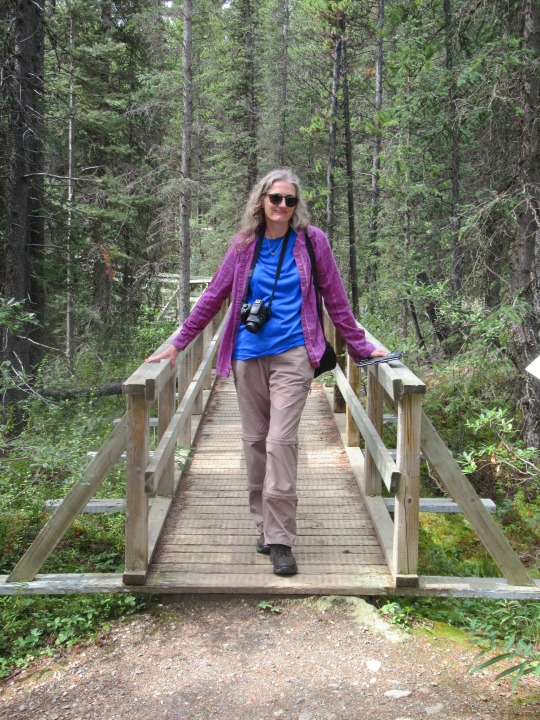
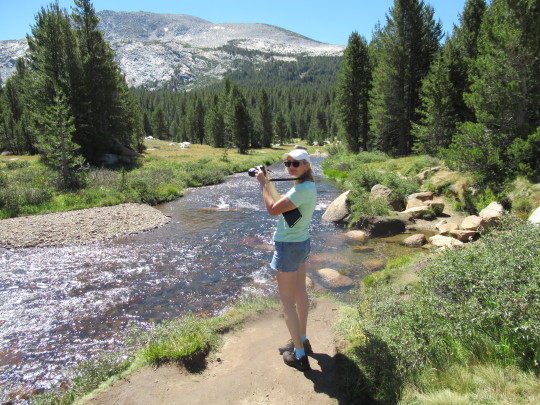
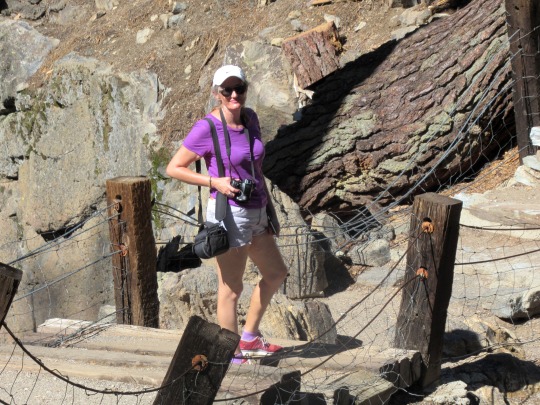

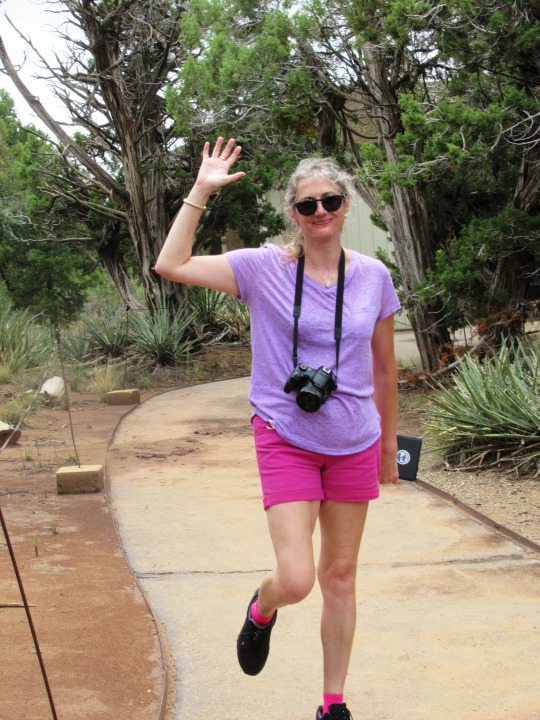


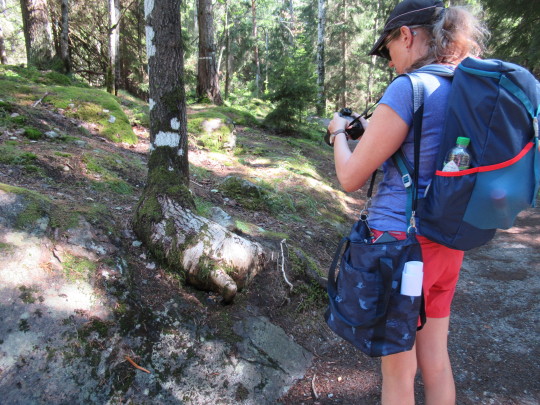

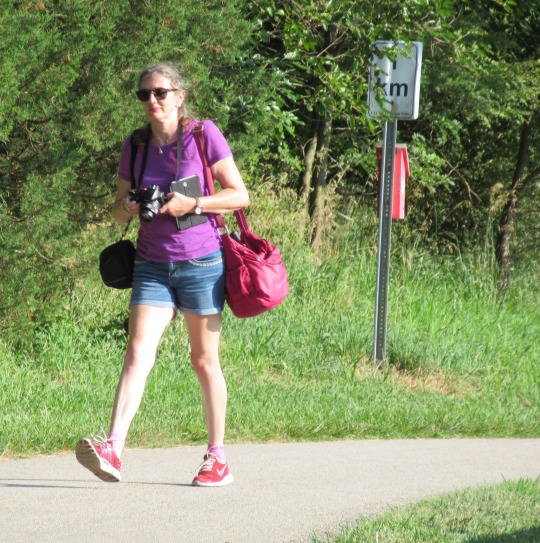


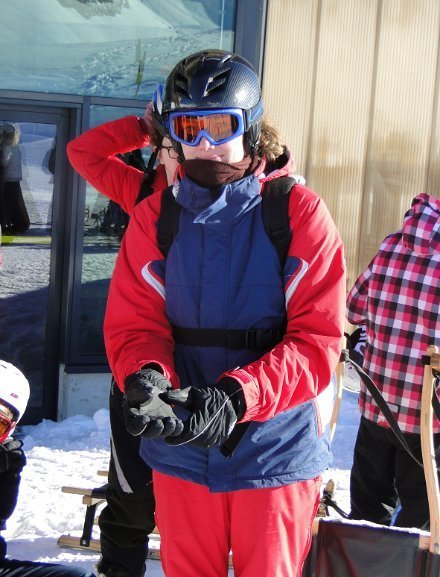


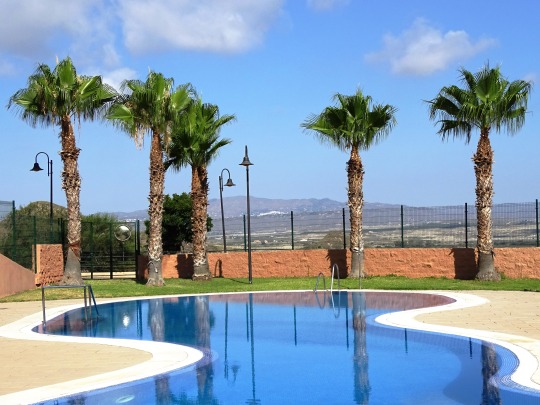
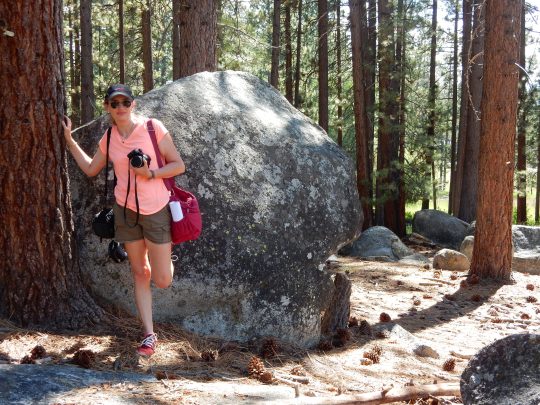


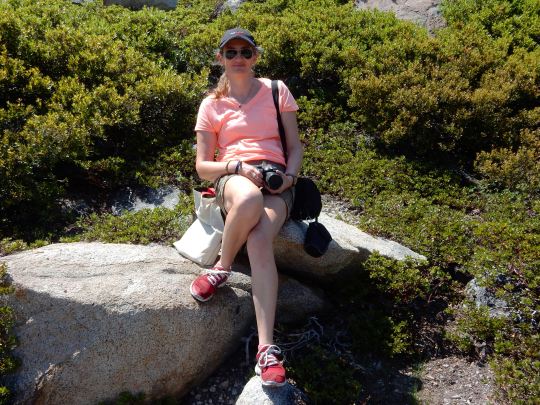

National Fitness Day
National Fitness Day in the U.S. is celebrated on the first Saturday of May — on May 4 this year. The day was founded by famous life- and career coach Kim Bielak in 2017 to dedicate a whole day to the importance of fitness.
History of National Fitness Day
Fitness in the U.S. during the Early National Period was influenced by Europe. Immigrants brought many aspects of their culture into the country, including Swedish and German gymnastics. It was in the 1800s that the idea of good health and fitness gained popularity. Since then, the United States took a huge step forward in terms of fitness in the 20th century. As sugars and fats increased in the diets of people due to the commercialization of food products, fitness became a prominent concept because people were becoming more aware of their health. Activity levels and food intake became measurable and thus controllable.
Early U.S. presidents also knew about the need for fitness and exercise. Benjamin Franklin recommended regular physical activities like swimming, running, etc., and Thomas Jefferson believed that fitness was a necessary requirement for a healthy life. Dr. J.C. Warren, a Harvard University medical professor, became a significant proponent of physical activities towards the end of the 18th century. Catherine Beecher was another important figure who devised fitness programs for the needs of women specifically.
During the 1950s, many organizations took up the challenge of educating people about the consequences of an unhealthy body. Various agencies have been involved in promoting fitness since the 1950s, including the American Medical Association (AMA), American Health Association (AHA), and President’s Council on Youth Fitness and American Association for Physical Education, Recreation, and Dance (AAPHERD). Although Kim Bielak is credited with starting National Fitness Day in the U.S., numerous fitness days have been around before this. A noteworthy celebration of such a day is the one that was held in London’s Covent Garden in 2014.
National Fitness Day timeline
1901 Theodore Roosevelt Becomes President
The most physically fit U.S. president, Theodore Roosevelt, takes his oath as president of the United States.
1940s An Application for Fitness Research
Dr. Thomas K. Cureton at the University of Illinois introduces his application of research into fitness, which becomes the fundamental basis for all future exercise programs.
1954 The American College of Sports Medicine
The American College of Sports Medicine is founded and is a premier organization in the promotion of health and fitness in the U.S. and worldwide.
1956 The Fit White House Conference
President Eisenhower holds a White House conference in June of 1956, resulting in the formation of the President's Council on Youth Fitness and the appointment of the President's Citizens Advisory Committee on the Fitness of American Youth.
National Fitness Day related content
National Fitness Day FAQs
Who founded National Fitness Day?
The U.S. National Fitness Day was founded by Kim Bielak, a life- and career coach based in Los Angeles.
What day is National Workout Day?
National Workout Day or National Fitness Day is celebrated on the first Saturday of May — on May 1 in 2021. It is a day dedicated to mental and physical fitness.
How do we celebrate National Fitness Day?
A day dedicated to fitness can be celebrated by working out with the aim to stay healthy and fit. You can work out, read books, and watch movies that inspire you to stay fit.
National Fitness Day Activities
Try something new
Experiment with your workout playlist
Watch movies to inspire yourself
Add some more exercises to your routine. If you are a runner, you can try yoga for more flexibility.
When was the last time you changed the songs in your workout playlist? Spice it up and add some more excitement to your daily workouts.
There are many movies that will help you stay motivated even when you are not working out. Here are some honorable mentions: “Rocky Balboa,” “Miracle,” “Hoosiers,” “Bend It Like Beckham,” and “Rudy.”
5 Facts About National Fitness Day That Will Blow Your Mind
Walk of Life
Not easy to lose weight
Loss for gain
The strongest muscle
The ‘rest’ of a workout
An average person walks 70,000 miles during his or her lifetime.
Only 10% of people lose weight by changing their diet regime.
For every pound of muscle you gain, your body burns 50 calories.
The strongest muscle in the human body is the heart.
Weight training can help you increase the number of calories your body burns while resting.
Why We Love National Fitness Day
It celebrates good health
It appreciates those who promote fitness
It motivates the youth
National Fitness Day is a day dedicated to a healthy mind and body that makes for a better life.
Many fitness gurus promote better health and well-being. This day is dedicated to all those who prove the importance of a physically and mentally fit society.
National Fitness Day is a day that motivates the youth to stay fit especially since modern society lives a much more sedentary life. We spend most of our time indoors and our jobs require almost no physical activity.
Source
#USA#Sweden#Schweiz#travel#Switzerland#landscape#countryside#I run and drive to work by bike#and some hiking#original photography#summer 2023#vacation#Yosemite National Park#Allure of the Seas#Alamosa#first Saturday in May#4 May 2024#cityscape#Canada#Sverige#tourist attraction#landmark#pool#Spain
0 notes
Text

⸻ 𝐕𝐎𝐔𝐆𝐇𝐓 𝐅𝐈𝐋𝐄. information may vary depending on verse.
full birth name: leon hiram marshall.
full legal name: leon hiram marshall.
etymology: leon, of greek origin-the greek λέων (léon; leōn), meaning "lion," hiram, (phoenician "benevolent brother", hebrew חִירָם "high-born", standard hebrew hiram, tiberian hebrew hîrām) is a biblical given name referring to phoenician kings. marshall, a name of french origin, an occupational surname that translates to “caretaker of horses”
known alias(es): benjamin andrew wright, ( BEN, BENJI ) given to him by a pr manager at vought, who wanted him with a more american name. wolfgang spitz used during covert missions located in europe between the years of 1943-1984.
nicknames / preferred name(s): hiram, in spite of and towards his father.
superhero title: CAPTAIN VOUGHT.
no one will know him by his birth / legal name unless he's explicitly expressed his true name to said person, please do not assume your character knows his birth / legal name. most people if they know a name outside of his superhero name to call him will call him ben or benji. the general public will know him only as captain vought.
gender identity: cismale ♂ | he/him pronouns.
romantic / sexual orientation: demiromantic bisexual, preference for women.
physical age: as of 2023, he is 108 (one hundred-eight) years old.
birthdate: he was born on friday, november 5th (fifth), 1915 at 5:34 AM.
zodiac sign: scorpio ♏︎
religion: non-denominational.
birthplace: boston, massachusetts.
current whereabouts: unknown. the asset in question has been identified as radioactive and highly volatile, posing significant health and safety risks to anyone who comes into contact with it. under no circumstances should anyone attempt to approach or handle the asset. vought urges the public to prioritize their personal well-being and report any sightings or suspicious activity immediately.
species: the first human (homosapiensapien) injected with the drug known as compound v (varying formula versions) effectively making him a supe or super-abled person.
physical: jensen ackles, younger: miles robbins (specifically his role in daniel isn't real.)
height: 6’3” (six feet, three inches).
weight: APPROX. 300 pounds (lbs / 136kg)
hair color / style: sandy brown, often a beard and facial hair, ginger-tint.
eye color: mesmerizing sweet greens, that seem to peer into your soul. domineering.
build / skin tone: mesomorph / fair-medium, with freckles all over his body.
dominant hand: ambidextrous, pre-compound v; left-handed.
blood type: o negative (universal donor)
alcohol / drug intake: high / high, including cigarettes.
phobias: read about them here. (2) dementophobia + claustrophobia.
mental disorders / conditions: read about them here. many.
addictions: the highlights of his hypersexuality, are found here.
overall description: there are always two sides to every coin, just as there are two sides to leon himself. the facet of his personality that is most commonly observed is characterized by arrogance, pomposity, and a mean-spirited demeanor. this is not due to his belief in his superiority over others, but rather stems from a lifetime of being repeatedly told that he would never measure up. however, concealed beneath this hardened exterior lies a side of leon that is brimming with compassion, understanding, and sympathy. he is, at his core, a gentle soul, though he guards this vulnerability closely. to him, revealing his softer side is not a sign of weakness in and of itself, but rather a potential vulnerability that can easily be exploited by others.
moral alignment: chaotic neutral.
citizenship: american. german passport: wolfgang spitz (formerly)
occupation: currently at large. factory worker at marshall steel (formerly), united states army (formerly). superhero for vought / vought international (formerly).
education level: high school drop-out. he was expelled from West Point Military Academy for fighting back against his bully-- a son of a well decorated officer. information sealed by hiram ulysses marshall.
notable languages spoken: english (first), american sign language (fluent), german (fluent), russian (fluent), morse code (fluent), italian (fluent), french (fluent), he’s well versed in picking up languages.
marital status: widowed.
significant other(s): laura esther marshall nee penn (wife; 1948-1959).†
vought had her killed and covered it up as a suicide.
every romantic dynamic is verse dependent and separate, such as if your character interacts with leon romanticly during the above dates then laura doesn't exist.
mother: rose grace marshall nee davies. year of death; 1932. † leon found his mother in the bathtub, deceased by suicide.
father: hiram ulysses marshall. year of death; 1941. † his death was ruled as an accident, hiram was found by leon, after he'd fallen and hit his head.no one knows but leon was present at the time of hirams fall, and did nothing to help his father, because of the tremendous abuse leon was put under while living in the marshall estate.
sibling(s): none.† the first two children rose had were still-born.
birth order: third born. rose considered leon her miracle baby.
other notable figures: frederick vought. year of death; 1963 † frederick vought suffered a heartattack in his office in vought tower, after which he passed away at lennox hill hospital. leon as Captain Vought attended his funeral procession and burial.
affiliations: vought labs (formerly), united states military (formerly), vought international (verse dependent; formerly), payback (formerly), retribution (verse dependent), the boys + company (verse dependent)
1 note
·
View note
Text
Studying abroad opens doors to a world of opportunities, and Poland has emerged as a popular destination for international students seeking quality education in Europe. With its rich cultural heritage, excellent academic institutions, and affordable tuition fees, Poland attracts students from all over the globe. If you’re considering applying for the September 2024 intake, RG Overseas is here to guide you through the process and ensure a smooth transition to your academic journey in Poland.
Advantages of Studying in Poland
Quality Education
Poland boasts a high standard of education, with many universities offering programs taught in English across various fields. Accredited by international organizations, Polish degrees are recognized worldwide, providing students with a solid foundation for their future careers.
Overview of RG Overseas
RG Overseas is a leading educational consultancy dedicated to helping students achieve their academic goals abroad. With years of experience and a team of experts, RG Overseas provides comprehensive support and guidance throughout the entire application process, from choosing the right program to securing accommodation and obtaining a visa.
Why Choose RG Overseas for Studying in Poland?
Reputation and Expertise
With a reputation for excellence, RG Overseas has helped countless students fulfill their dreams of studying abroad. Our team of consultants are highly knowledgeable about the Polish education system and are committed to providing personalized guidance tailored to each student’s needs.
Support Throughout the Application Process
Applying to study abroad can be daunting, but with RG Overseas by your side, you can rest assured knowing that you’re in good hands. From initial consultation to post-arrival support, we are committed to ensuring that your transition to studying in Poland is as seamless as possible.
Application Process for the September 2024 Intake
Researching Programs and Universities
The first step in applying to study in Poland is researching programs and universities that align with your academic and career goals. With a wide range of programs available, it’s essential to consider factors such as curriculum, faculty expertise, and campus facilities when making your decision.
Preparing Application Documents
Once you’ve selected the programs and universities you wish to apply to, the next step is preparing your application documents. This typically includes academic transcripts, letters of recommendation, a personal statement, and proof of English proficiency for non-native speakers.
Submitting Applications
After completing your application documents, you can submit them directly to the universities or through centralized application platforms such as the Polish National Agency for Academic Exchange (NAWA). Be sure to check the application deadlines for each program and university to ensure that your application is submitted on time.
Visa Application Process
Requirements
To study in Poland, international students must obtain a student visa. The requirements for a student visa may vary depending on your country of origin, but typically include proof of acceptance to a Polish university, sufficient funds to cover tuition and living expenses, and medical insurance.
Documentation
When applying for a student visa, you will need to submit various documents, including a valid passport, passport-sized photographs, proof of accommodation in Poland, and a completed visa application form. It’s essential to carefully review the visa requirements and ensure that you have all the necessary documentation before submitting your application.
Accommodation Options for International Students
Finding accommodation in Poland is relatively easy, with a range of options available to suit every budget and preference. Many universities offer on-campus housing for international students, while others opt to rent private apartments or share accommodation with fellow students.
Life in Poland for International Students
Cultural Experiences
Studying in Poland offers a unique opportunity to immerse yourself in Polish culture and traditions. From exploring historic landmarks to attending cultural festivals, there’s no shortage of exciting experiences to discover in Poland.
Language Considerations
While many programs in Poland are taught in English, learning the Polish language can enhance your overall experience and make it easier to communicate with locals. Many universities offer Polish language courses for international students, allowing you to develop your language skills while studying abroad.
Conclusion
Studying in Poland offers a unique opportunity to receive a quality education in a vibrant and culturally rich environment. With its affordable tuition fees, excellent academic institutions, and welcoming community, Poland is an ideal destination for international students seeking an unforgettable study abroad experience. With the support of RG Overseas, you can navigate the application process with confidence and embark on your academic journey in Poland.
#Best Poland student Visa Consultant#IELTS#RG Overseas#study abroad#study in Poland#Study in Poland September 2024 Intake#Studying in Poland#TOEFL#visa consultant in Rajkot
0 notes
Text
Top European Countries Offering Work Opportunities for Indians in 2024.
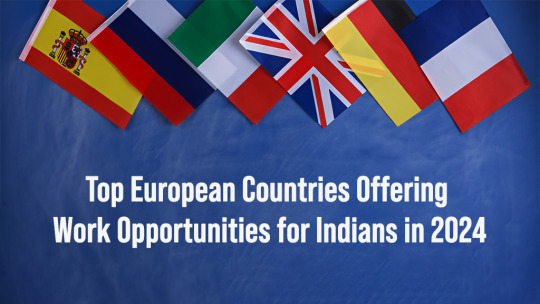
In recent years, European countries have increasingly become attractive destinations for Indian expatriates seeking employment opportunities abroad. With diverse job markets, high living standards, and welcoming environments, several European nations have emerged as hotspots for Indian professionals looking to broaden their horizons. This article explores the top European countries offering work opportunities for Indians in 2024, along with the benefits of employment and types of work visas available.
Over the past two years, statistics reveal a significant rise in the number of Indian immigrants relocating to Europe in pursuit of better career prospects and quality of life. According to recent data, the influx of Indian expats to European nations has witnessed a steady increase of approximately 15% annually, highlighting the growing trend of migration from India to Europe.
Best European Countries for Indian Expats
Hungary
Hungary stands out as one of the Best European countries for Indian expats due to its vibrant economy, affordable living costs, and welcoming atmosphere for foreign professionals. The benefits of employment in Hungary include competitive salaries, ample job opportunities in sectors such as IT, engineering, and healthcare, and a favorable work-life balance.
Benefits of Employment
Competitive Salaries: Indian professionals in Hungary often enjoy competitive remuneration packages, ensuring financial stability and growth opportunities.
Job Diversity: The Hungarian job market offers diverse opportunities across various industries, catering to the skills and expertise of Indian expatriates.
Quality of Life: With its rich cultural heritage, excellent healthcare system, and well-developed infrastructure, Hungary provides a high quality of life for expats and their families.
Types of Work Visa
Indian citizens can apply for a work visa (Residence Permit for the Purpose of Employment) to legally work and reside in Hungary.
The visa application process involves obtaining a job offer from a Hungarian employer, fulfilling specific eligibility criteria, and providing necessary documentation to the immigration authorities.
Czech Republic
The Czech Republic emerges as another favorable destination for Indian expats seeking work opportunities in Europe. Renowned for its booming economy, picturesque landscapes, and vibrant culture, The Czech Republic offers a conducive environment for professional growth and personal development.
Benefits of Employment
Thriving Job Market: The Czech Republic boasts a thriving job market with a demand for skilled workers in sectors such as information technology, manufacturing, and finance.
Cultural Richness: Indian expatriates in the Czech Republic can immerse themselves in a rich tapestry of cultural experiences, from historic landmarks to vibrant festivals.
Work-Life Balance: Employers in the Czech Republic prioritize work-life balance, providing employees with flexible working hours and ample leisure opportunities.
Types of Work Visa
Indian nationals can obtain a Long-Term Residence Permit for the Purpose of Employment to work legally in the Czech Republic. The visa application process involves securing a job offer, meeting specific requirements, and submitting the necessary documentation to the Czech embassy or consulate.
Also Read: [May Intake in UK Universities 2024 – What You Need To Know]
Slovakia
Slovakia offers promising work opportunities and a high standard of living for Indian expats seeking employment in Europe. With its growing economy, scenic beauty, and welcoming populace, Slovakia presents an attractive destination for professionals looking to build their careers abroad.
Benefits of Employment
Economic Stability: Slovakia’s stable economy and strategic location in Central Europe make it an ideal destination for Indian expats seeking long-term career prospects.
Affordable Living Costs: Compared to other European countries, Slovakia offers relatively affordable living costs, including housing, transportation, and healthcare.
Cultural Diversity: Indian expatriates in Slovakia can experience a blend of Eastern European charm and modern amenities, creating a unique cultural fusion.
Types of Work Visa
Indian citizens can apply for a Temporary Residence Permit for the Purpose of Employment in Slovakia. The visa application process entails securing a job offer, fulfilling specific criteria, and undergoing medical examinations as per Slovak immigration regulations.
Finland
Finland ranks among the top European countries offering lucrative work opportunities and a high quality of life for Indian expatriates. With its innovative technology sector, picturesque landscapes, and progressive society, Finland attracts skilled professionals from around the globe.
Benefits of Employment
Innovation Hub: Finland’s reputation as a global leader in technology and innovation provides abundant career prospects for Indian professionals in sectors such as IT, engineering, and research.
Work-Life Balance: Finnish workplaces prioritize employee well-being and work-life balance, fostering a conducive environment for personal growth and professional development.
Education System: Finland’s world-renowned education system ensures access to quality education for expat families, making it an attractive destination for Indian parents seeking holistic development for their children.
Types of Work Visa
Indian expatriates can apply for a Work Residence Permit to legally work and reside in Finland. The visa application process involves obtaining a job offer from a Finnish employer, meeting specific eligibility criteria, and submitting the required documents to the Finnish Immigration Service.
Conclusion
In conclusion, European countries offer promising work opportunities and a high standard of living for Indian expatriates seeking employment abroad. From Hungary’s bustling economy to Finland’s innovative technology sector, each nation presents unique advantages and cultural experiences for Indian professionals. By understanding the benefits of employment and types of work visas available in these countries, Indian expats can make informed decisions and embark on successful careers in Europe.
0 notes